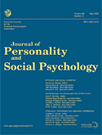



Social Psychology Experiment Reveals White College Students’ Reluctance to Discuss Issues of Race
 Researchers at Tufts University and Harvard Business School conducted a series of social psychology experiments to examine if whites avoid talking about race so that they will not be perceived as racist. The results were published in the Journal of Personality and Social Psychology and Developmental Psychology.
Researchers at Tufts University and Harvard Business School conducted a series of social psychology experiments to examine if whites avoid talking about race so that they will not be perceived as racist. The results were published in the Journal of Personality and Social Psychology and Developmental Psychology.
In the first experiment a white college student was presented with 30 photographs. People in the pictures were different in race, gender, and appearance. The student was paired with either a black or white partner who chose one of the 30 photographs but hid it from the view of his partner. The white test subject was then told to ask questions of his partner to determine which of the 30 photographs the partner had selected.
Despite the fact that race was an efficient way of narrowing the field to determine which of the 30 photographs was selected, the white test subject was significantly less likely to ask the partner about race if the partner was black than if the partner was white.
A second experiment involved black and white college students who were shown videotapes of the first experiment. Both black and white observers stated that the whites who declined to ask about race were perceived as more prejudiced than those who asked their partner about the race of the person in the photograph. Thus, whites who avoid race in order not to be perceived as racist actually are perceived as more prejudiced than those whites who did not avoid the subject of race.
In a third experiment a similar photographic test was given to elementary school students ages 8 to 11. The students were told that they would score higher if they identified the correct photograph using the least amount of questions. The results showed the students aged 10 and 11 were less likely to ask about race than students who were 8 and 9 even though it caused them to use more questions to arrive at the correct answer.
The authors conclude that children as young as 10 feel the need to try to avoid being perceived as prejudiced.
![]()
Copyright © 2008. The Journal of Blacks in Higher Education. All rights reserved.